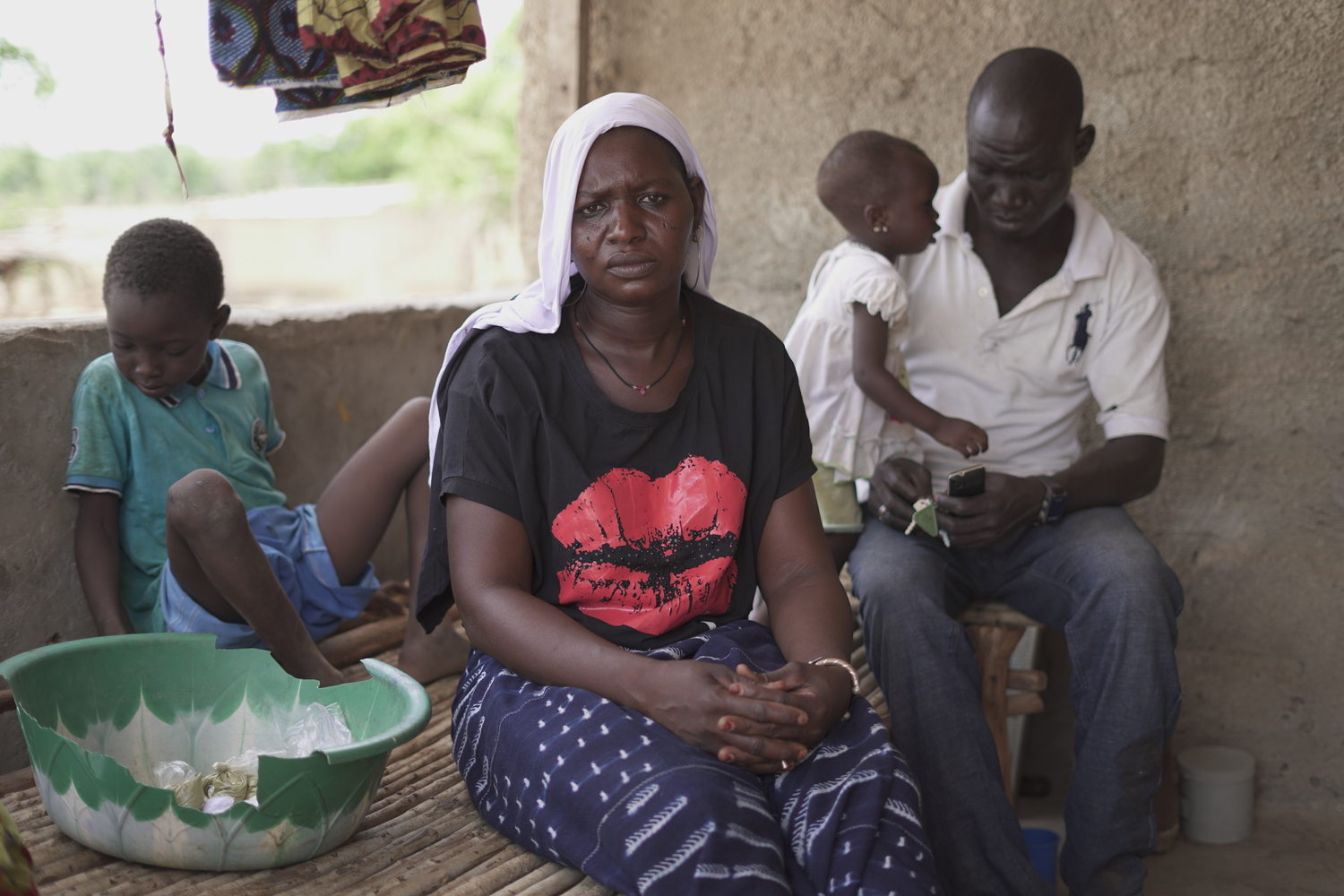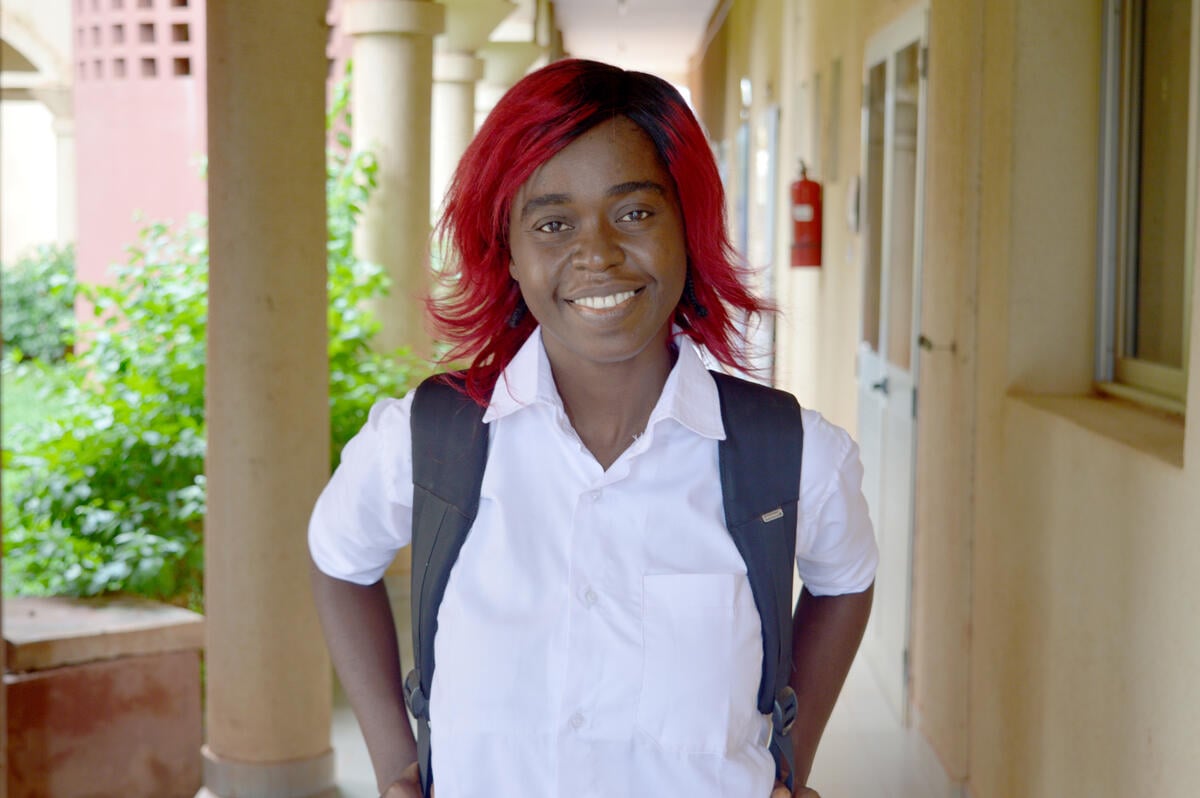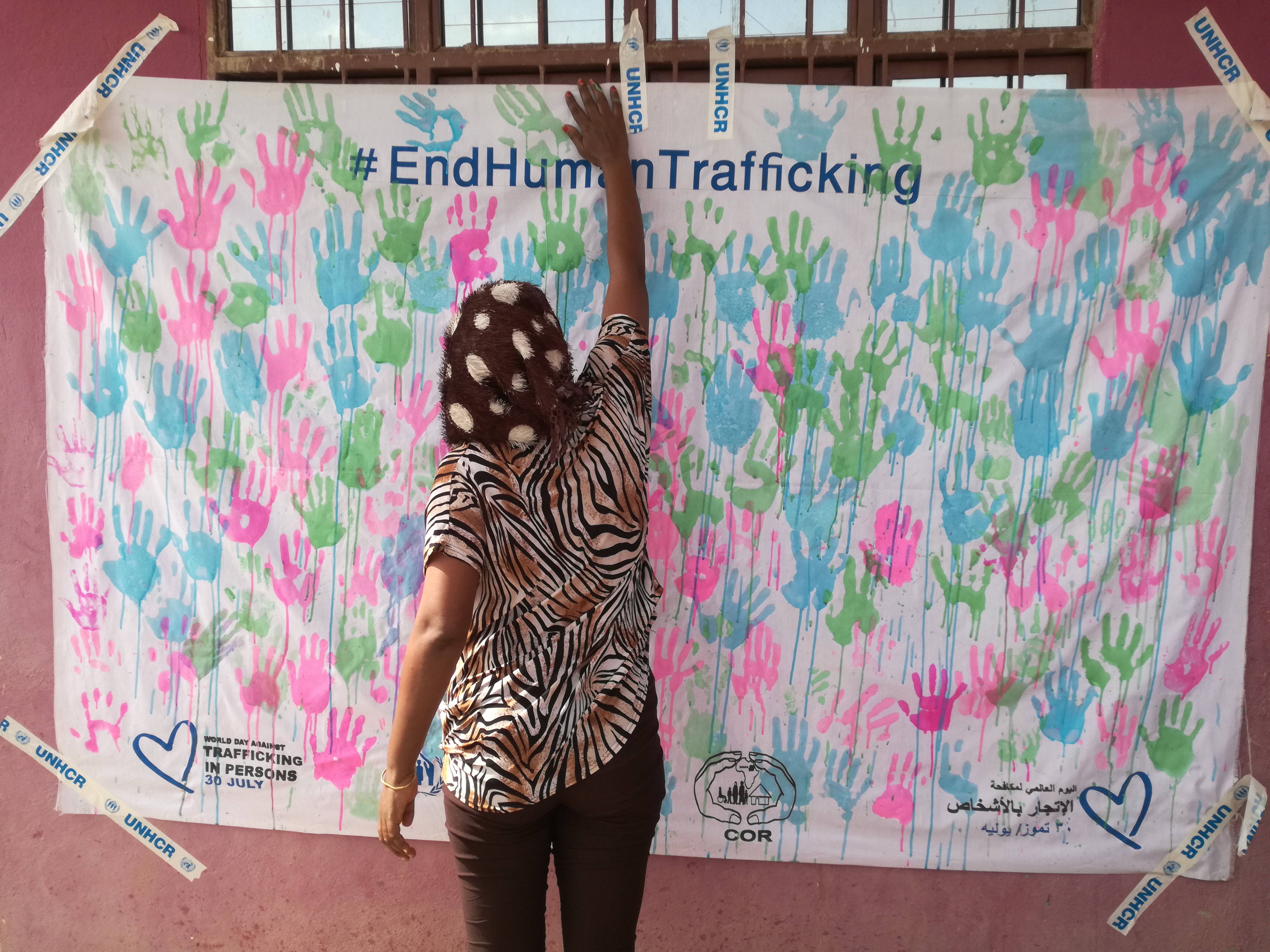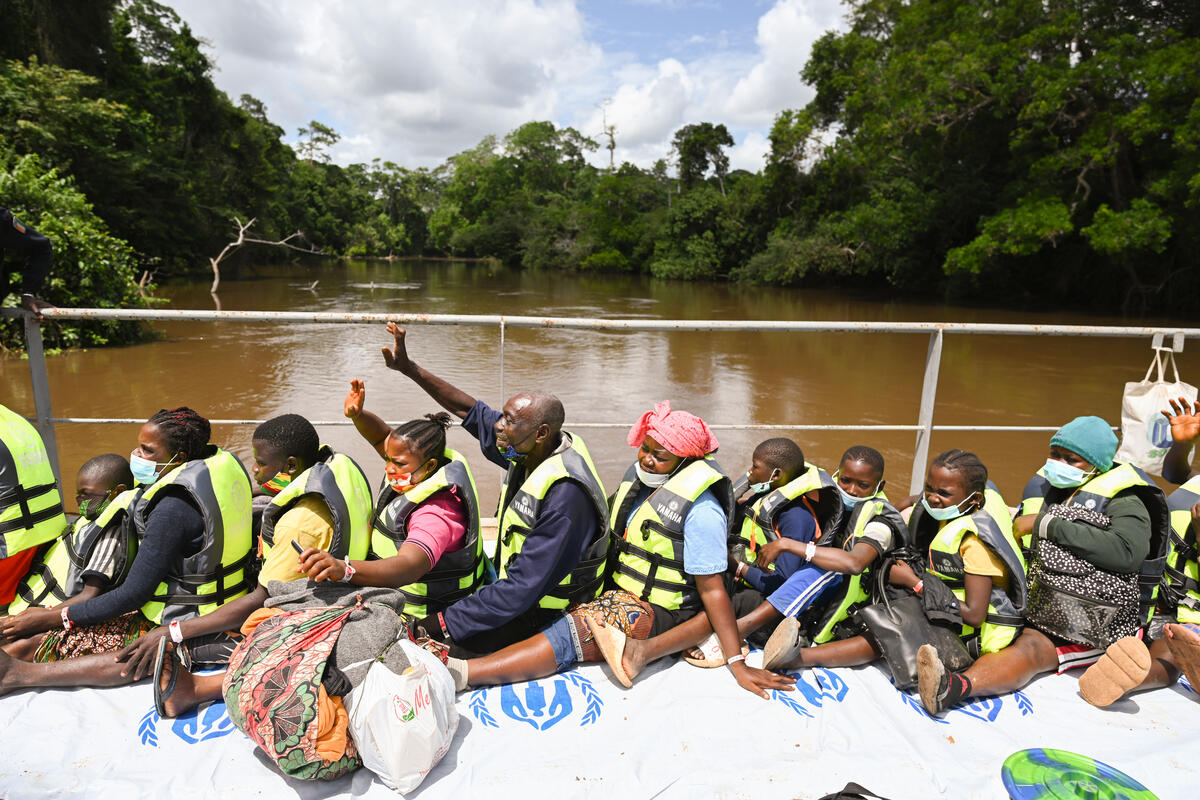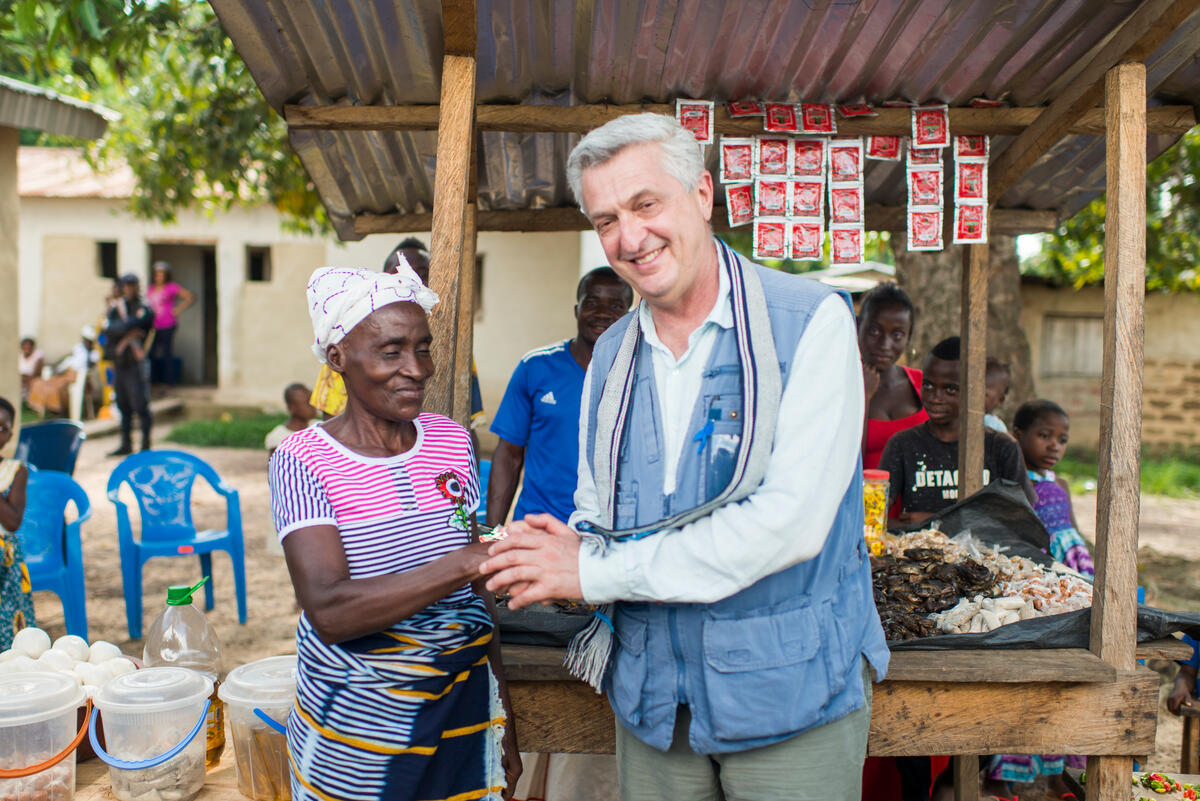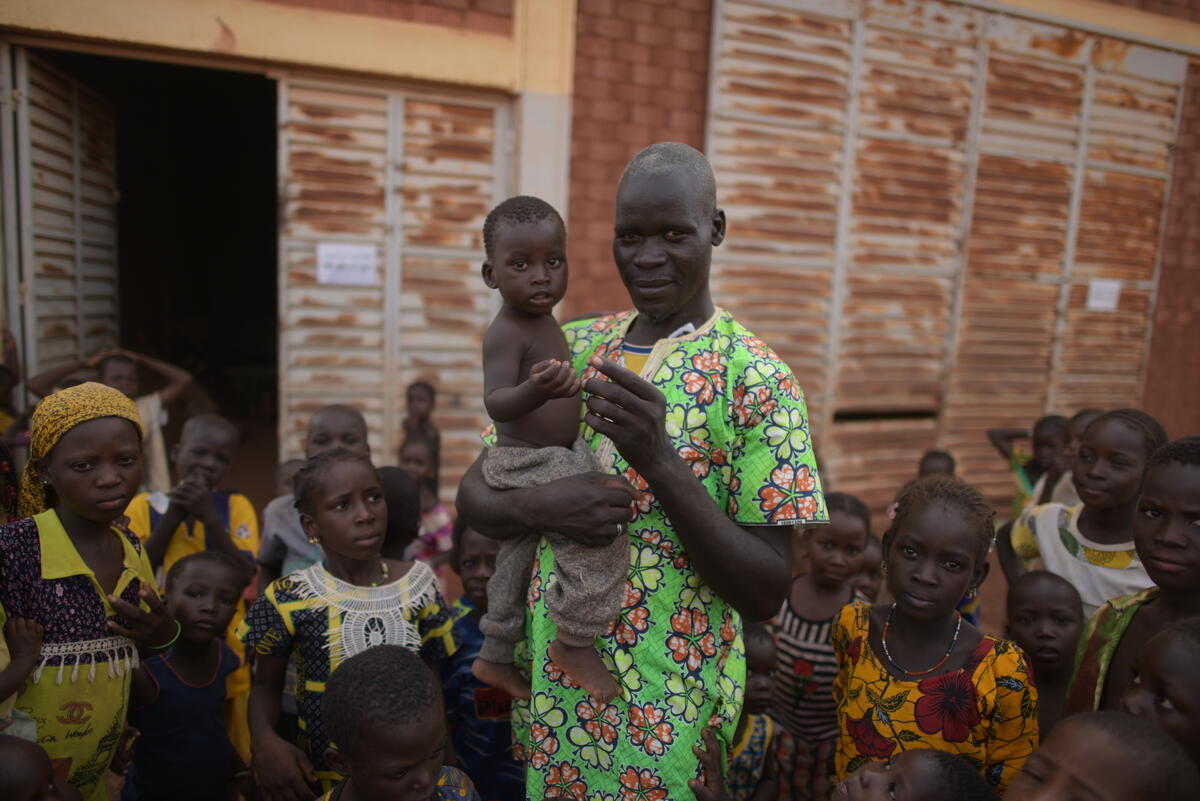UNHCR could expand emergency repatriation from Ivorian south-west
UNHCR could expand emergency repatriation from Ivorian south-west

ABIDJAN, Côte d'Ivoire, Feb 4 (UNHCR) - The UN refugee agency is looking to expand its repatriation operation for Liberian refugees in south-western Côte d'Ivoire, reaching out to those stranded in villages further afield as local tensions show no sign of abating.
More than 1,500 Liberian refugees have already returned from Tabou in south-western Côte d'Ivoire since UNHCR started the emergency repatriation on January 17.
"At the moment we don't know how many refugees still in the area want to be repatriated," said Anne Dolan, head of UNHCR's Tabou office. "We have heard rumours that there are refugees in the villages who want to go home but have no transport."
Many more Liberians could be stranded in villages outside Tabou, where they face hostile local communities accusing them of siding with the rebels in the four-month-old Ivorian conflict. Refugees who tried to leave for Liberia have been turned back at checkpoints manned by vigilante youth.
UNHCR is trying to help the Liberians leave the volatile region for their homeland. But the agency will need more logistical support - trucks and mini-buses - to transport the refugees from their villages. It will also need to launch an information campaign to ensure that the returns are voluntary. Some of the refugees may not want to go home because of security conditions in Liberia.
Dolan added, "The Ivorian government will soon embark on an information campaign in the villages advocating peaceful co-existence. We do hope that this will give refugees enough confidence to stay if they choose to do so."
The transit centre at Tabou is now ready to accommodate refugees waiting for repatriation, as well as those who don't want to return but need protection amid local tensions. UNHCR has just completed repairing and upgrading the centre with a new water system and generator.
Meanwhile, UNHCR has reiterated its concern over the continued razing of shantytowns in the southern city of Abidjan. In the last week alone, humanitarian agencies have received reports of armed men bursting into at least two poor districts at night, threatening residents and setting houses on fire.
Most of those affected are Ivorians and other nationals. So far, no newly displaced refugees have sought help from UNHCR, which already cares for over 1,000 refugees of mostly Liberian and Sierra Leonean origin who lost their shantytown homes during earlier razing operations in Abidjan.
Disturbed by the ongoing turmoil, the displaced refugees are getting restless and are pressing for immediate evacuation.
"We are telling the others to have patience, but they say they cannot take it anymore," said one refugee representative. "We are all scared and feel like we are living in hell on earth. For months we have been confined to the transit centres - afraid to go out, targeted, waiting for the moment that something really bad will happen. We want to leave before it is too late."
But for many of the Liberian refugees in Abidjan, repatriation is not an option. "I left Liberia because I was dead scared. I can't return now, I can't return tomorrow, maybe I can never return," said James, who fled to Côte d'Ivoire three years ago when he was targeted by government troops. "Now, as a refugee, I am scared again to go into the streets, to speak my mind, to speak at all. I just want to go somewhere where I can be free and safe. It doesn't matter if I will be poor."
In an attempt to defuse tensions between the locals and Liberian refugees, the UN refugee agency is launching an awareness campaign throughout Côte d'Ivoire calling on Ivorians to respect refugees instead of blaming them for the current conflict. Local artists, television and radio personalities and street theatres will join hands to produce shows to explain the vulnerable situation of Liberian refugees. There will also be posters and T-shirts to spread the message that refugees should not be equated with rebels.

